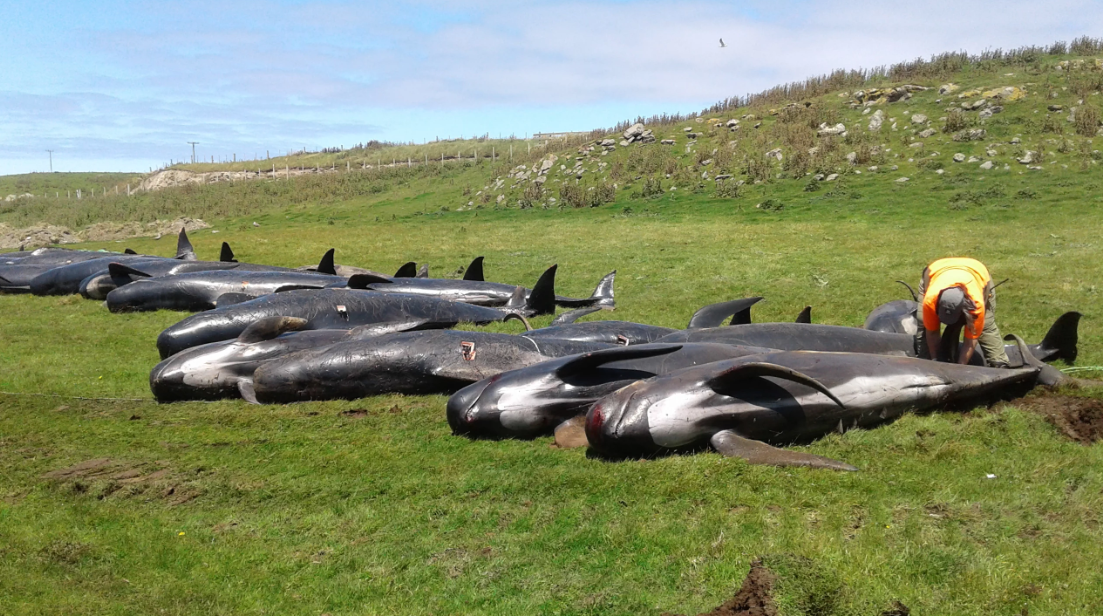
A large group of whales were stranded in New Zealand last week, the third such stranding in the space of a few days. Of 51 stranded whales, 50 of them were dead when authorities arrived and the one that was alive was euthanized because it was in such poor condition, according to the Department of Conservation.
"There was no likelihood of being able to successfully save the remaining whale. Sadly, the decision was made to euthanize. It was the most humane thing to do," the Chatham Islands Operations Manager for the DoC, Dave Carlton, said in a press release.
Originally there were 80 to 90 whales that were stranded and 30 to 40 of them returned to the water near Owenga in the Chatham Islands. Authorities were in the process of taking samples from the whales to try and learn more about the species of pilot whales that were stranded.
The whales will be buried in a mass grave on land where they were stranded at the southern end of Hanson Bay. Normally whales are buried in the sand but these whales were buried on land because the area where they were stranded didn't have the beach space for them, according to the DoC.
This stranding is the third in a week. There were 145 whales stranded Monday on Rakiura/Stewart Island, according to the DoC and none of those whales survived. Those were also pilot whales.
The other stranding happened Sunday when 10 pygmy killer whales were stranded on 90-mile-beach in Northland. In total, more than 250 whales have been involved in the strandings over the last week and the cause of the strandings is unknown, according to the DoC.
New Zealand is a popular area for strandings and the DoC responds to an average of 85 strandings per year, though most of those are of single animals, not massive strandings like the recent ones. The largest strandings are usually of long-finned pilot whales though the most common strandings are of dolphins, pygmy sperm whales and beaked whales.
The DoC accepts volunteers for help when there's stranding. But they do recommend that people who are seriously interested take a Marine Mammal Medic Course.
Uncommon Knowledge
Newsweek is committed to challenging conventional wisdom and finding connections in the search for common ground.
Newsweek is committed to challenging conventional wisdom and finding connections in the search for common ground.
About the writer
Nina was a breaking news reporter. She previously worked at Business Insider, The Boston Globe, and Boston.com.
To read how Newsweek uses AI as a newsroom tool, Click here.








